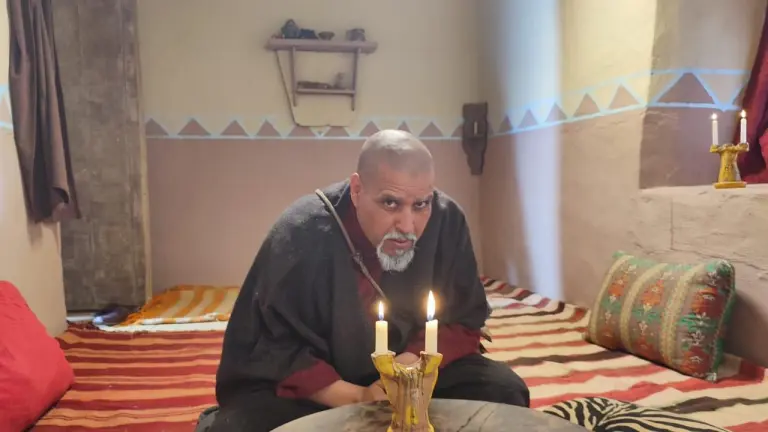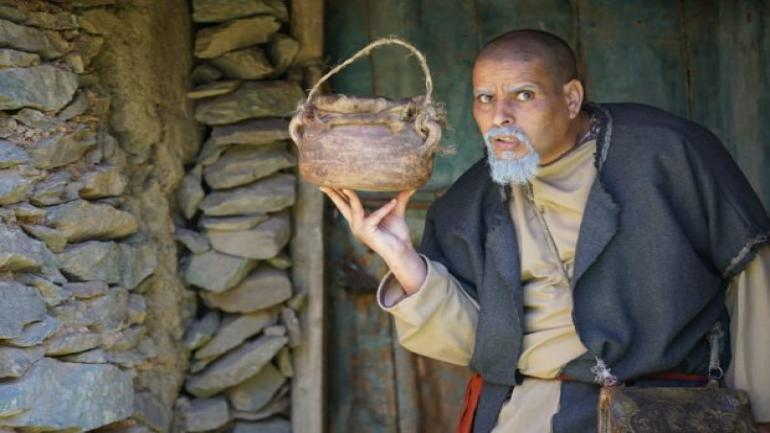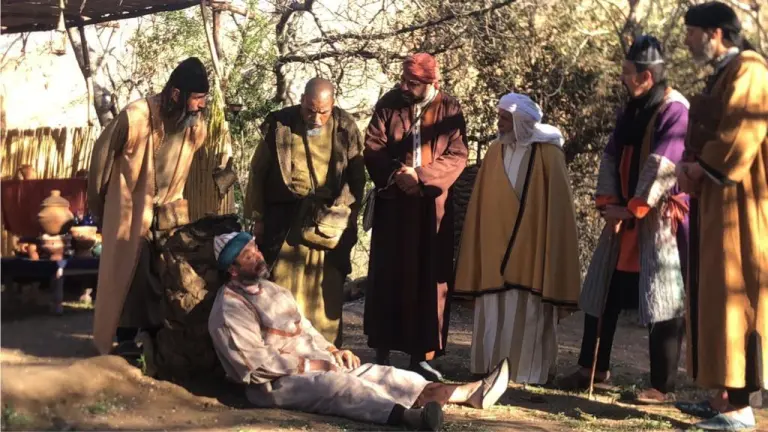The series “Baba Ali” climbs the global ladder in its third step towards unprecedented viewership

The series “Baba Ali” swept the field of Amazigh drama and achieved a high rate of daily viewing and follow-up on the eighth Amazigh channel screen at breakfast time, and on YouTube channels, but it did not stop there, but rather imposed itself strongly during the third part on digital broadcasting platforms.
From the first part to the third part, the series “Baba Ali” presented a number of life and societal dramas in an interesting style, a distinctive plot, and wonderful photography, which made it gain wide national and international fame.

One of the features that attracted viewers in Morocco and outside the borders of the Amazigh drama through this series is the quality of the social issues it deals with, which do not focus only on love as Arab drama does, including human and social relations in the Amazigh society, as well as manifestations of coexistence and coexistence between Jews. And the population based on tolerance and respect, in addition to the subtitle tape attached to each episode, which helped enable non-Amazigh speakers to follow this series, which is considered the ambassador of the Amazigh culture.
Dramas are effectively used as a tool for what is known as “cultural diplomacy”, and the Amazighs have a cultural, historical and civilizational stock, as well as human, geographical and natural elements on which the “Baba Ali” series is based. It helps to introduce the culture, language, history and geographical present of many Moroccan regions and regions, especially forgotten Amazigh regions Attractive elements are stored in its topography, geography, and urban component, such as the regions of Ajoukak, the districts of Marrakesh, which witnessed the filming of the first and second parts, as well as the Tifut region, which witnessed the events of the third part.

The professionalism of both director Mustafa Ashour and screenwriter Ahmed Ntama was one of the elements of dazzling and success factors in transforming the scenes into more attractive geographical and ecological areas by moving from the Ajokak region to the Tefnut region, which is rich in its natural and urban resources, to continuously improve and modify works at the level of cultural, historical, civilizational, and geographical inventory And natural.
Whether you are a fan of TV series or you are on the verge of diving into the world of drama and watching the series “Baba Ali”, it will make you explore the best highly rated series in terms of artistic direction, as the director of the series, Mostafa Ashour, controls all the dramatic and technical aspects of the work based on:

Selecting the most appropriate space and natural effects of Amazigh specificity, the “Tefnut region” and transforming the viewer’s passion into exploring distinct geographical areas, providing the technical elements represented in the camera, lighting and acoustics, and then the technical elements that are represented in the staff, in addition to the actors who are chosen because of their ingenuity In performing the roles professionally, they are led by the hero of the series and the screenwriter, the artist Ahmed Ntama, who embodies the role of Babali with distinction, and a group of the brightest stars of the Moroccan screen, such as Ahmed Aweinti, who played the role of Amghar, and the artist Al-Hussein Paradouise in the role of Al-Dagour, Abdel-Latif Atef, Al-Hassan Shashaw, Mustafa Al-Saghir, Al-Zahia Al-Zuhairi, Hassan Jakar Yazm, Ibrahim Asli, Zahra Al-Maghboul Tamkrut, and Khadija Skareen,…. And other stars of the Moroccan screen, numbering more than 90 artists.
Agadir : Ibrahim Fadel
Source : websites

